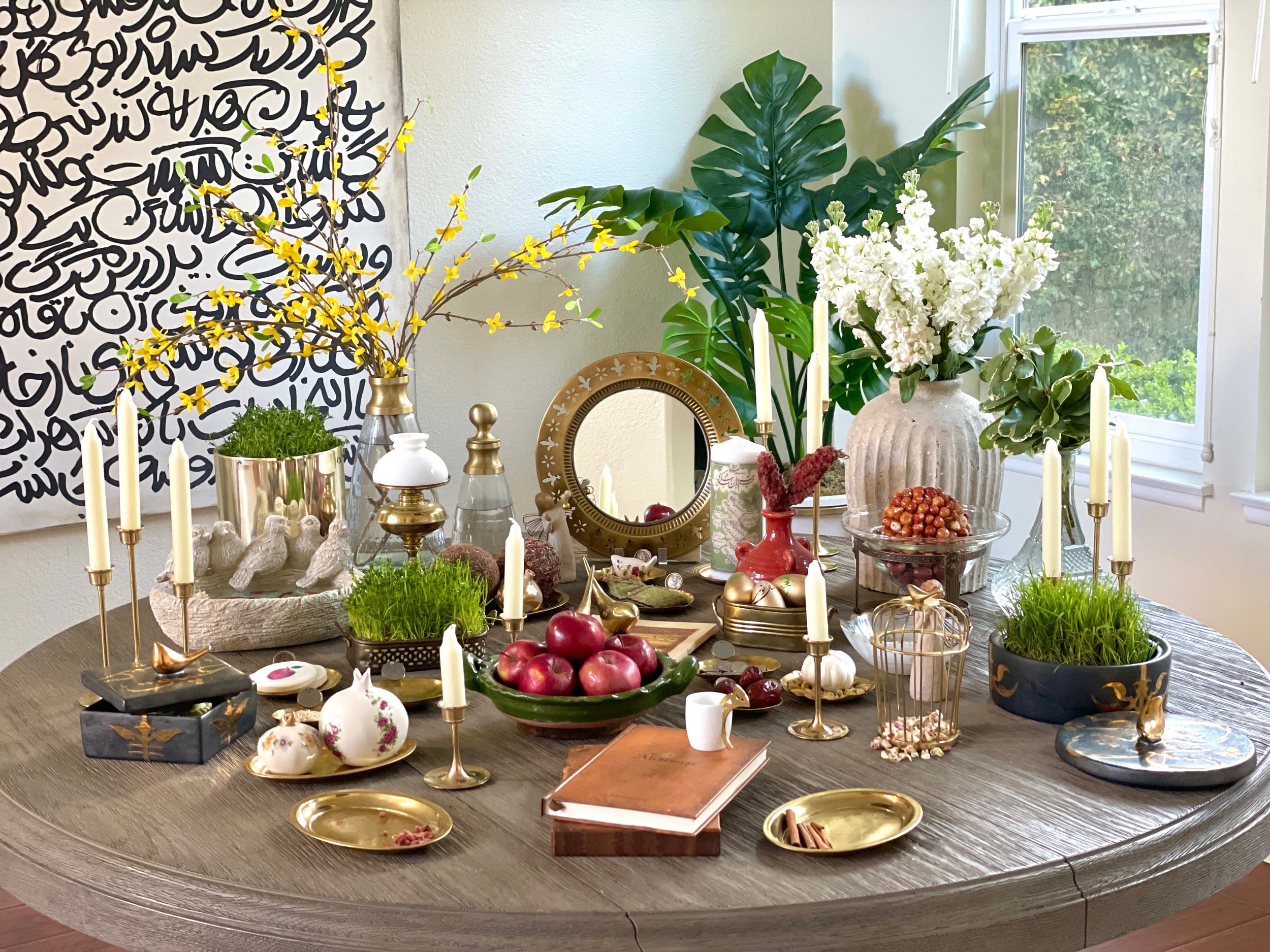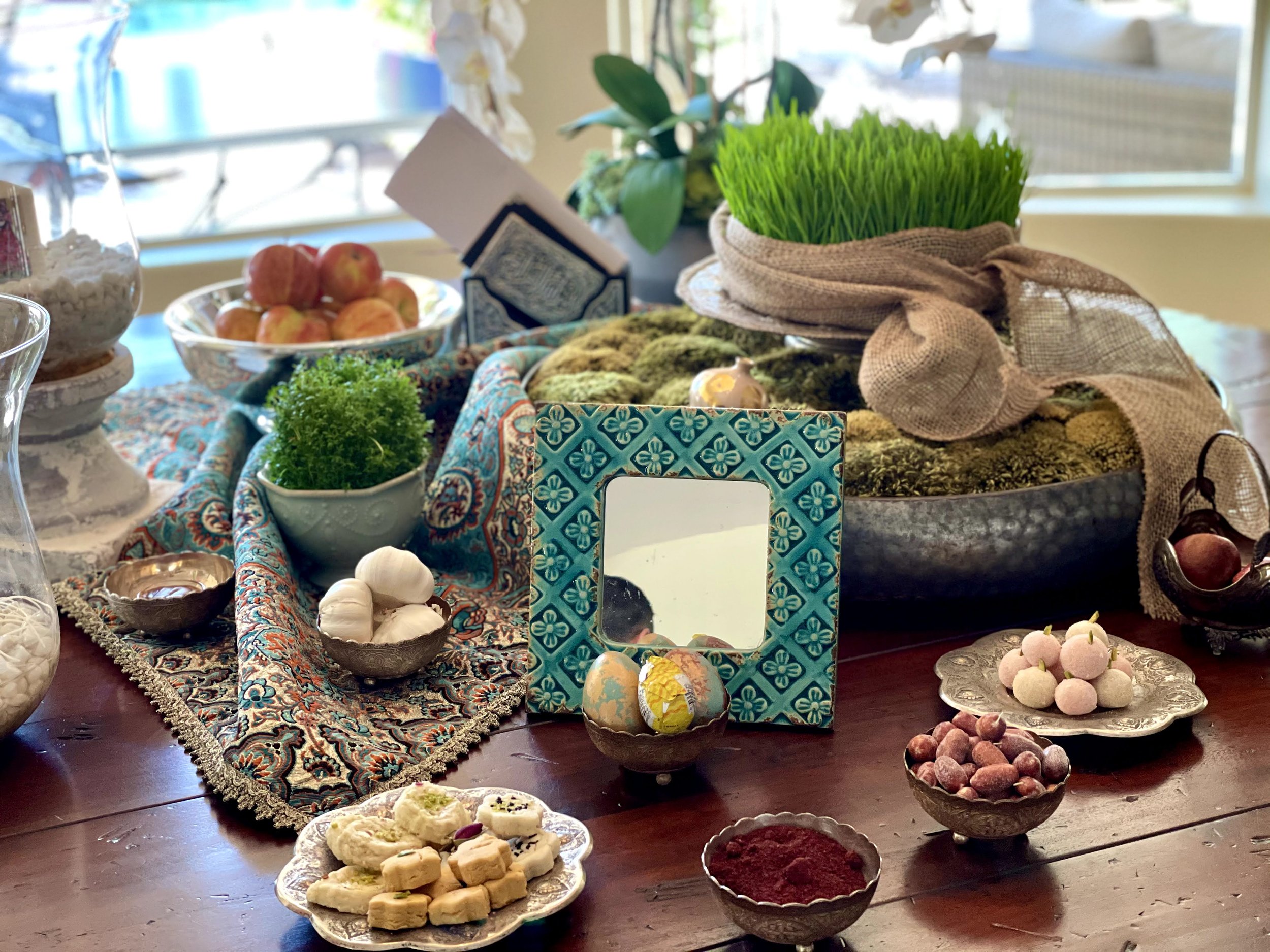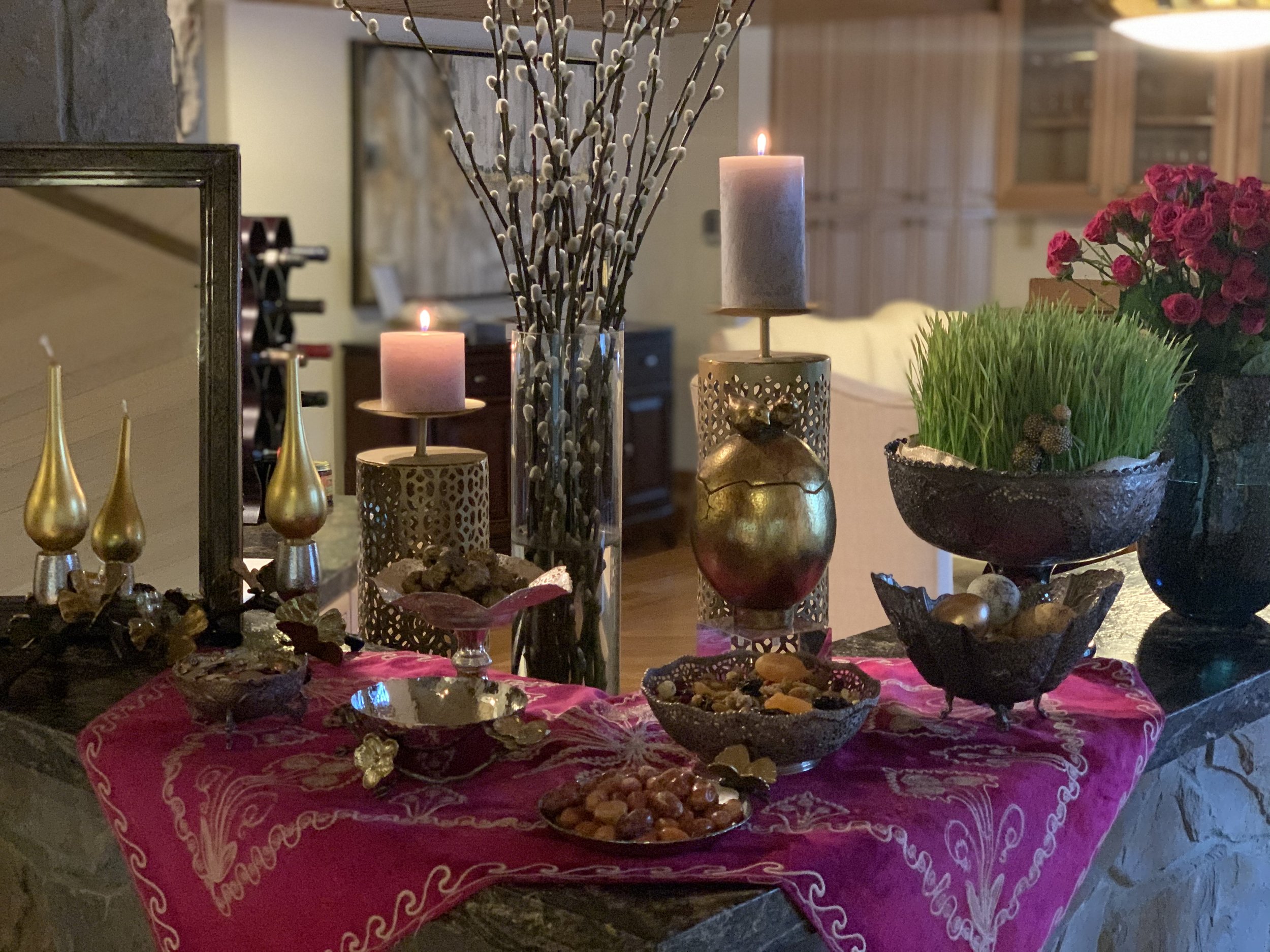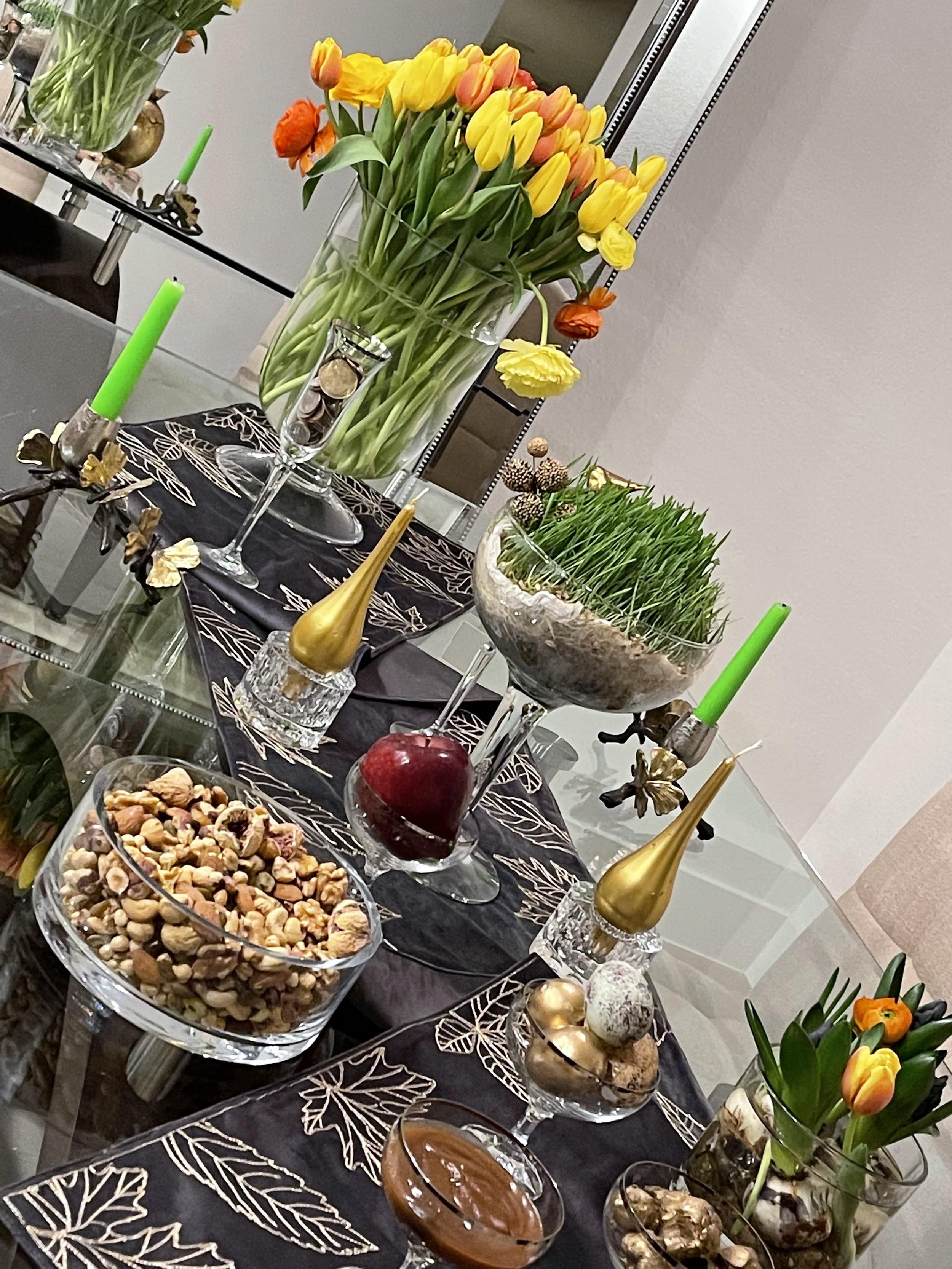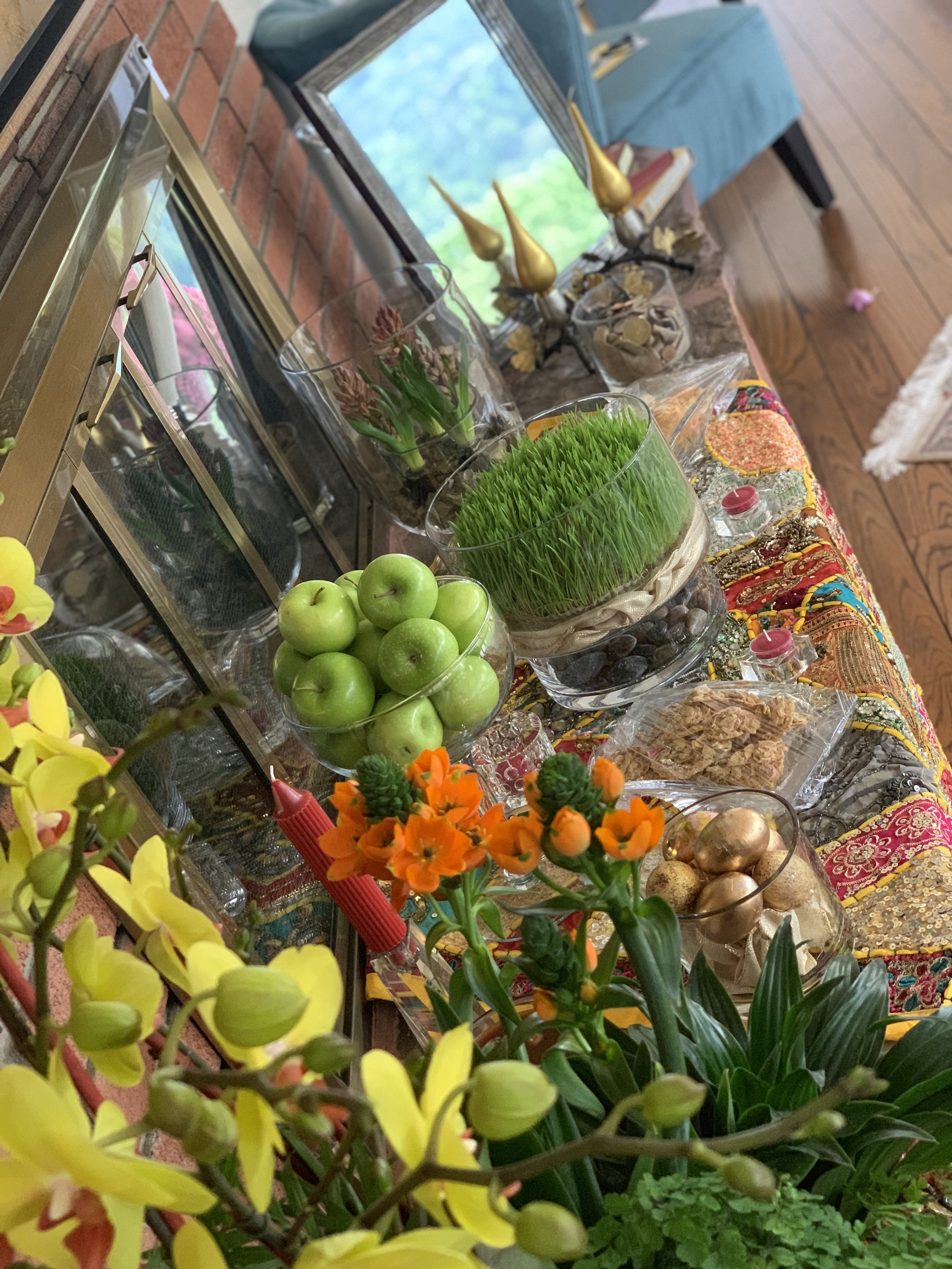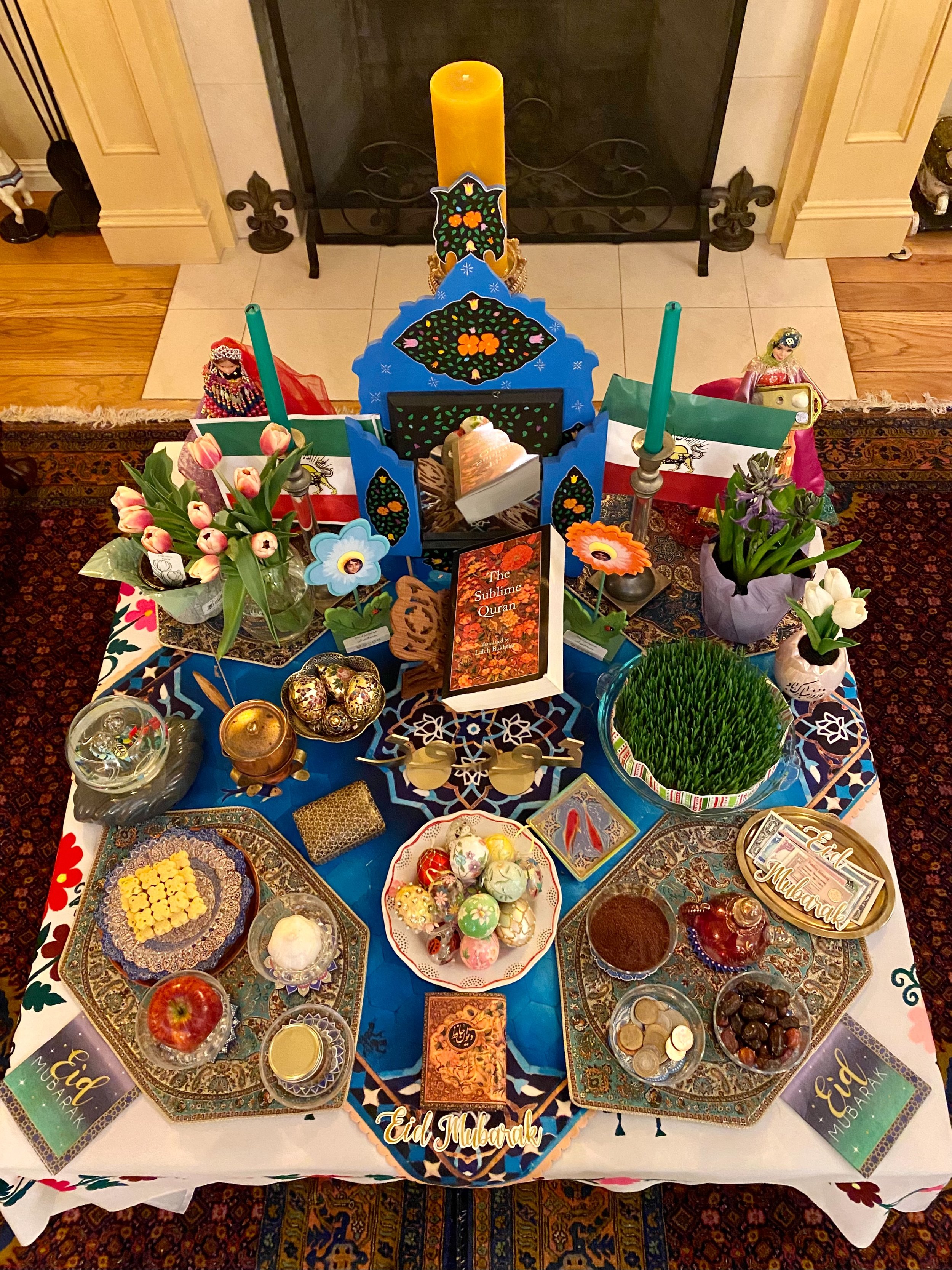Celebrating Nowruz : Persian New Year!
As a part of Women's History Month, we wanted to highlight on the Iranian women of our chapter who have recently been celebrating Nowruz, Persian New Year, which marks the 1st day of Spring. We greatly appreciate Mani Farhadi who has put together some information below about the holiday and it's significance to many throughout the world. We are grateful to celebrate Nowruz this year with these Iranian women who actively participate in our Silicon Valley chapter: Our WIA Chair Sherry Sajadpour, our Social Media Leads Mani Farhadi and Sepi Amin, and our Design Awards logo designer Shadi Sinclair!
Lastly, we give a shoutout to the women of Iran fighting bravely against tyranny and oppression of the government, with nothing but courage and conviction.
For Persians (Iranians), New Year begins on the 1st Day of Spring, a tradition dating over 2,500 years ago. This cultural festival marks the calendar year, based on a seasonal change, with families gathering to celebrate Nowruz together. In Farsi, 'Now' means 'New' and 'Ruz' means 'Day’, thus it’s a 'New Day'. Occurring at Spring Equinox, the precise moment when the sun crosses the equator is calculated, equalizing day and night: Mon. March 20th, 2023 at 2:24:27 pm (pst). In the Iranian calendar, it is year 1402!
On the last Tue night of the year, Iranians gather to jump over a fire, in a tradition to symbolize a healthy year ahead. The ceremony is ‘Chahar-Shanbeh Soori.’ For the New Year, families sit around a table covered with a tapestry ‘Sofreh.’ Placed upon it are at least 7 symbolic items. In Farsi, these begin with 'S', thus the table is called 'Haft Seen' or 'Seven S'. These objects range from: red apples (seeb) for health, coins (sekkeh) for prosperity, hyacinth (sombol) a flower that blooms only in spring, vinegar (serkeh) to represent transformation, garlic (seer) to chase away evil, the spice sumac (somagh) for zest, wheat paste (samanou) showing patience, dried Bohemian olives (senjed) for love, and sprouted greens (sabzeh) as a sign of nature’s rebirth and renewal.
Other items: a mirror to reflect life, candles to shine light, goldfish in a bowl as a living form, pastries for sweetness, painted eggs for fertility, and bread for a plentiful year. Depending on your faith, you place a holy book (Quran, Torah, Bible, Avesta) or a book of poetry. Whether Zoroastrian, Assyrian, Armenian, Muslim, Jewish, Bahai, Agnostic or Atheist, this celebration is for Persians of all religions and ethnicity. Aside from Iran, it is celebrated in Afghanistan, Albania, Azerbaijan, Bangladesh, Bosnia, Georgia, India, Iraq, Kazakhstan, Kosovo, Kyrgyzstan, Mongolia, Pakistan, Tajikistan, Turkey, Turkmenistan, Ukraine, and Uzbekistan.
At the exact time of the Equinox, the family holds hands and embraces. Typically, the Persian media conducts a countdown with a drum and trumpet. The special meal served is called 'Sabzi-Polo Mahi’, white long-grain rice with dill and fish. A side dish called 'Kookoo' (quiche) is made with green herbs and eggs. For two weeks in Iran, schools and firms are closed as families visit each other. In America, the visits occur on weekends. First, we visit the elder relatives and then we see other relatives and friends. They in turn come to visit you. These visits are called ‘Deed-va-Bazdeed’. In preparation, homes undergo a thorough spring cleaning and everyone buys a new outfit. Tea, pastries and fruit are served to guests. In lieu of gifts, youth receive money from adults, as fresh, clean bills are handed out. Everyone greets each other saying ‘Nowruz Pirooz’ (may you have a victorious New Day).
On the 13th day of the New Year (end of March/early April), families partake in group picnics, known as ‘Sizdeh Bedar’. Since 13 is unlucky, homes are aired out so bad spirits leave. In parks around the world, Iranians gather to celebrate the picnic, with music, dancing and food. They toss their ‘sabzeh’ (wheat sprouts) into running water, thus returning the plant to nature. A thick bean and noodle soup called ‘Aush’ is served, whose tangled noodles undo any chaos. Kababs, mixed nuts, tea and fruit are enjoyed, while playing chess, cards or backgammon. The fresh air rejuvenates everyone as they begin the year with renewed energy and optimism. Thinking of the brave fighters in Iran rebelling against tyranny and oppression, we hope for not only a prosperous and healthy Spring, but the victory of good over evil and the triumph of light over darkness.

